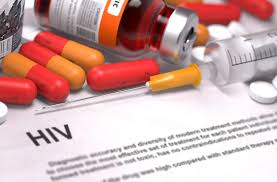Are Your Everyday Medicines Secretly Harming Your Health?
Medicines play a vital role in improving health and managing diseases. From painkillers to blood pressure tablets, millions of people around the world rely on daily medication. However, recent medical discussions have raised an important question: Could some of these everyday medicines be silently affecting our long-term health?
In this article, we explore the hidden side effects of commonly used medications, why they happen, and how you can take steps to protect yourself.
The Role of Everyday Medicines
Prescription and over-the-counter (OTC) medicines are designed to treat or prevent health conditions. Antibiotics fight infections, antihistamines relieve allergies, and painkillers reduce discomfort. For many patients with chronic illnesses such as diabetes, hypertension, or asthma, daily medicines are a lifeline.
Yet, no medication comes without risks. While the benefits usually outweigh the negatives, prolonged use can sometimes lead to side effects that go unnoticed until they cause health problems.
Common Medicines That May Have Hidden Side Effects
1. Painkillers (NSAIDs and Paracetamol)
Non-steroidal anti-inflammatory drugs (NSAIDs) like ibuprofen and aspirin are among the most used medicines globally. While effective, long-term or frequent use may increase risks of:
- Stomach ulcers and bleeding
- Kidney strain
- High blood pressure
Paracetamol (acetaminophen), often considered safe, can harm the liver if taken in high doses or combined with alcohol.
2. Antacids and Acid Reflux Medicines
Proton pump inhibitors (PPIs), commonly prescribed for acidity and heartburn, are safe for short-term relief. However, studies suggest that long-term use may:
- Reduce absorption of essential minerals like calcium and magnesium
- Increase risk of bone fractures
- Cause vitamin B12 deficiency
3. Antibiotics
Antibiotics are powerful drugs that save lives, but overuse or misuse can cause problems such as:
- Killing healthy gut bacteria, leading to digestive issues
- Resistance, making infections harder to treat
- Allergic reactions in sensitive individuals
4. Sleeping Pills and Anti-Anxiety Medications
Drugs such as benzodiazepines may provide relief from insomnia or anxiety, but dependency and withdrawal are serious risks. Side effects can include:
- Daytime drowsiness and poor concentration
- Memory issues
- Increased risk of falls in older adults
5. Blood Pressure and Cholesterol Medications
For patients with hypertension or high cholesterol, daily medicines are essential. However, side effects can include:
- Muscle pain (from statins)
- Fatigue and dizziness (from beta-blockers)
- Electrolyte imbalances (from diuretics)
Why Do These Hidden Effects Occur?
Medicines affect not only the targeted condition but also other systems in the body. For example, while painkillers reduce inflammation, they may irritate the stomach lining. Similarly, antibiotics fight infection but also disrupt healthy bacteria.
The risk increases with:
- Long-term use of medicines
- High dosages without medical supervision
- Mixing different drugs without checking interactions
How to Protect Yourself
While this may sound alarming, it does not mean you should stop taking prescribed medicines. Instead, follow these safety steps:
- Consult Your Doctor Regularly
Always review your medications with your doctor, especially if you take them long term. - Avoid Self-Medication
Never take prescription drugs without medical guidance. Even OTC medicines can be harmful in excess. - Ask About Alternatives
In some cases, lifestyle changes such as diet, exercise, and stress management can reduce reliance on medication. - Report Side Effects
If you experience unusual symptoms—like persistent stomach pain, dizziness, or fatigue—tell your doctor immediately. - Practice Moderation
Take only the prescribed dose and avoid unnecessary medication.
Safer Alternatives to Explore
- Natural remedies: Herbal teas, turmeric, ginger, and omega-3 supplements may offer relief for mild issues like inflammation.
- Lifestyle adjustments: Healthy eating, regular exercise, and proper sleep often reduce dependence on medicines.
- Preventive care: Routine health check-ups can catch problems early before strong medication is needed.
Final Thoughts
Everyday medicines are designed to heal, but their hidden side effects cannot be ignored. Awareness is the first step to safety. With medical guidance, moderation, and healthier lifestyle choices, you can reduce risks while benefiting from the medicines you truly need.
Your health is your greatest asset—take an active role in understanding what goes into your body.
SEO Keywords to Target
- Everyday medicines side effects
- Hidden dangers of medication
- Long-term effects of painkillers
- Antibiotics risks and misuse
- Safe alternatives to prescription drugs
- How to reduce dependency on medication
